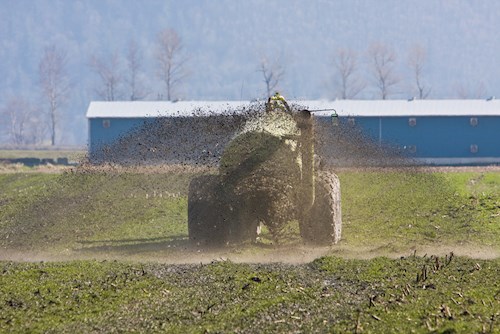
Farmers are being encouraged to follow best practice guidance on spreading manure and dirty water during the ongoing wet and wintry weather.
The Code of Good Agricultural Practice recommends that farmers should not apply livestock manure and dirty water when heavy rain is forecast within the next 48 hours or when the land is waterlogged, covered with snow or frozen hard.
Farmers are now facing a difficult situation with slurry at this time of the year, given the recent weather conditions.
Natural Resources Wales (NRW) said it wants to work with farmers to make sure they get the most out of the valuable nutrients in their slurry whilst also making sure that no slurry enters watercourses.
Bob Vaughan, Sustainable Land Manager for NRW said: “The Wales Land Management Forum, which includes NRW, is working with Farming Connect to provide more support and guidance to help advise farmers and contractors.
“Farming Connect can offer practical advice, identify improvements and find simple, cost effective solutions to problems with storing slurry and manure.
“They can also provide advice about the importance of preparing a contingency plan before anything goes wrong.”
'Healthy water environment'
Slurry and manure are an important on-farm financial resource, providing valuable nutrients.
“Unfortunately, slurries and manures are also pollutants if they enter watercourses; affecting water quality, stripping oxygen from water, and killing fish and other river life,” Mr Vaughan said.
“These same streams and rivers provide us with a huge range of benefits in Wales - including a clean drinking water supply, water for business use and recreation opportunities.
“This is why we all need to play our part in ensuring that we have a healthy water environment.”
Most farmers have a manure management plan and this will identify where it is safe to spread livestock manures and dirty water to avoid causing water pollution.
Farmers who use contractors have been urged by NRW to ensure they are aware of the pollution risks on the farm and use safe application rates and methods.
Recently, a dairy farm in Devon has been ordered to pay costs of £14,252 after a "serious and persistent" case of pollution taking place.
